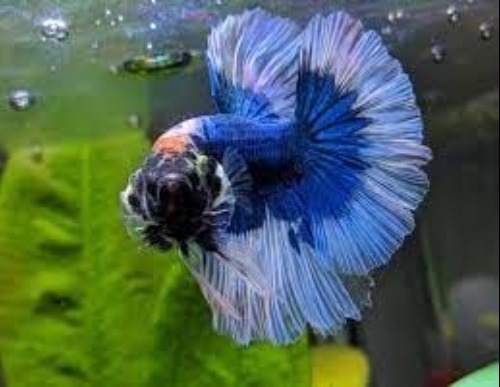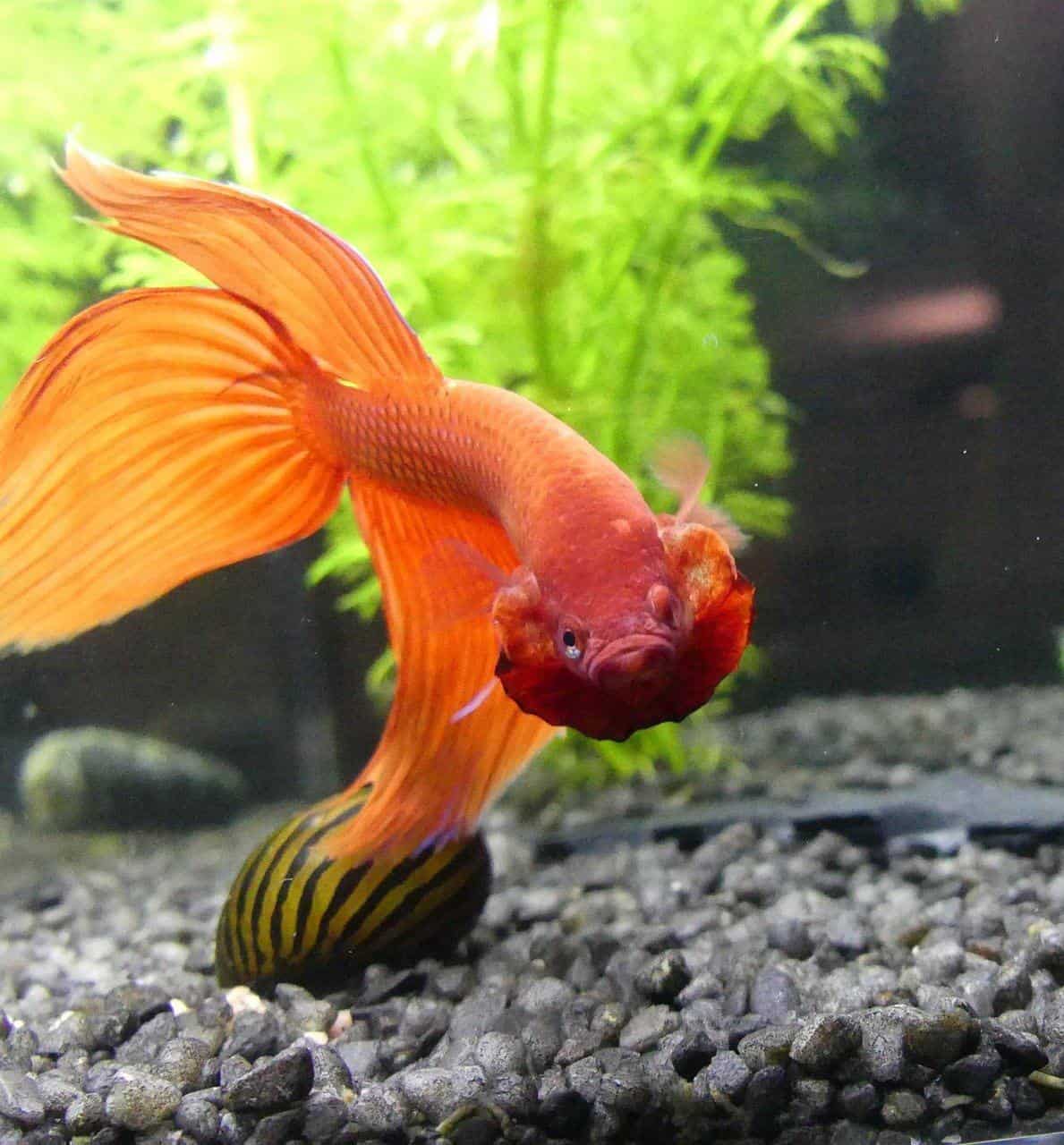Betta fish are known for their beautiful and vibrant colors, long fins, and flared gills. While flared gills may be a natural occurrence in betta fish, they can also be a sign of underlying health issues. As a betta fish owner, it’s essential to understand the causes and solutions for flared gills to ensure your fish stays healthy and happy.
In this article, we’ll explore the different reasons why betta fish gills may flare, including stress, water quality, and disease. We’ll also provide practical solutions to help you alleviate the issue and prevent it from happening again in the future. So, whether you’re a new betta fish owner or a seasoned enthusiast, keep reading to learn more about betta fish gills flared and how to keep your fish in optimal health.
Flared gills in betta fish are a sign of aggression, fear, or stress. If your betta fish’s gills are flared, check their environment to ensure that they have enough space, clean water, and appropriate temperature. Additionally, make sure that your fish isn’t feeling threatened by other fish or their own reflection. Finally, consider adding hiding places and plants to the tank to help your betta feel secure.

Betta Fish Gills Flared: Causes and Solutions
Flared gills in betta fish can be a sign of distress or aggression, and it’s essential to know what causes them and how to solve the problem. In this article, we will explore the causes of betta fish gills flared and discuss some solutions to help you keep your fish healthy and happy.
Causes of Betta Fish Gills Flared
Betta fish gills flared can be caused by a variety of factors, including:
1. Aggression
Betta fish are known for their territorial behavior, and if they feel threatened or challenged, they may flare their gills to appear more significant and intimidate their opponent. This behavior is entirely normal and should not be a cause for concern unless it becomes excessive.
2. Poor Water Quality
Poor water quality can cause betta fish to become stressed and more susceptible to diseases. When fish are stressed, they may flare their gills as a sign of distress. It’s important to keep the water clean and free from harmful chemicals and debris.
3. High Ammonia Levels
High levels of ammonia in the water can cause betta fish to experience respiratory distress, leading to flared gills. Ammonia levels should always be kept in check to ensure the health and well-being of your fish.
4. Disease
Flared gills can also be a sign of disease, such as fin rot or velvet. If your betta fish’s gills are flared and they are exhibiting other symptoms such as lethargy, loss of appetite, or discoloration, it’s essential to seek veterinary care immediately.
Solutions to Betta Fish Gills Flared
Here are some solutions you can try to help prevent and treat betta fish gills flared:
1. Maintain Clean Water
Keeping the water clean is the most critical factor in preventing betta fish gills flared. Regular water changes and proper filtration can help maintain good water quality and reduce the risk of disease.
2. Reduce Stress
Reducing stress in your betta fish’s environment can help prevent flared gills. Providing hiding spots and minimizing disturbances can help reduce stress levels in your fish.
3. Treat Disease
If your betta fish has flared gills due to disease, it’s essential to seek veterinary care immediately. Your vet may prescribe medication or recommend other treatments to help your fish recover.
4. Provide Proper Nutrition
Feeding your betta fish a balanced diet can help keep them healthy and prevent disease. Providing a variety of foods, including live and frozen options, can help ensure your fish are getting all the nutrients they need.
5. Separate Aggressive Fish
If you have multiple betta fish in the same tank, it’s essential to monitor their behavior and separate any aggressive fish. Providing separate tanks or dividers can help prevent fights and reduce stress levels in your fish.
Benefits of a Healthy Betta Fish
Keeping your betta fish healthy and happy has many benefits, including:
1. Longer Lifespan
A healthy betta fish can live for several years, while an unhealthy fish may have a shorter lifespan. By providing proper care and nutrition, you can help your fish live a long and happy life.
2. Vibrant Colors
Betta fish are known for their bright and vibrant colors, which can be dull or faded if they are unhealthy. Providing proper nutrition and a clean environment can help maintain your fish’s beautiful colors.
3. Reduced Risk of Disease
A healthy betta fish is less likely to contract diseases, which can be costly and time-consuming to treat. By providing proper care and nutrition, you can help prevent disease and keep your fish healthy.
4. Improved Mood and Behavior
A healthy and happy betta fish is more likely to exhibit positive behavior, such as swimming and exploring, and less likely to become aggressive or stressed.
In conclusion, betta fish gills flared can be a sign of distress or aggression, and it’s essential to know what causes them and how to solve the problem. By maintaining clean water, reducing stress, treating disease, providing proper nutrition, and separating aggressive fish, you can help keep your betta fish healthy and happy, which has many benefits for both you and your fish.
Frequently Asked Questions
Betta fish are known for their bright colors and elegant fins but they are also susceptible to various health issues. One of the most common problems that betta fish owners face is flared gills. In this article, we will discuss the causes and solutions for this problem.
What are the causes of betta fish gills flared?
Flared gills in betta fish can be caused by various factors. One of the most common reasons is poor water quality. If the water in your betta fish tank is not clean, it can cause irritation and inflammation in their gills. Another reason for flared gills is the presence of parasites or bacteria. These can infect the gills and cause inflammation. Stress is also a common cause of flared gills in betta fish. If your betta fish is stressed, it can lead to gill inflammation.
What are the signs of betta fish gills flared?
Flared gills in betta fish can be easily identified. The gills of your fish will appear red and inflamed. You may also notice your fish gasping for air more frequently than usual. Another sign of flared gills is a decreased appetite. If your betta fish is not eating as much as it used to, it could be a sign of gill inflammation.
How can I prevent betta fish gills flared?
Preventing flared gills in betta fish is relatively easy. The first step is to ensure that the water in their tank is clean and is changed regularly. You should also ensure that the water temperature is within the recommended range. Adding plants and hiding spots in the tank can also help reduce stress in your betta fish. Feeding a well-balanced diet and avoiding overfeeding can also prevent gill inflammation.
How can I treat betta fish gills flared?
If your betta fish has flared gills, you should immediately take steps to treat it. The first step is to ensure that the water in their tank is clean and free of toxins. You can also add aquarium salt to the water to help reduce inflammation. Medications such as antibiotics or antifungal agents may also be required in severe cases. It is important to consult with a veterinarian or a fish expert before administering any medication to your betta fish.
When should I seek professional help for betta fish gills flared?
If your betta fish continues to show signs of flared gills despite your efforts to treat it, you should seek professional help. A veterinarian or a fish expert can diagnose the underlying cause of the problem and provide the necessary treatment. It is also important to seek professional help if your betta fish is showing other signs of illness such as lethargy, loss of appetite, or abnormal behavior.

Why is my betta fish flaring its gills?
In conclusion, betta fish gills flaring can be caused by a variety of factors. It is important to identify the specific cause in order to properly treat the issue and keep your betta fish healthy. Some possible causes include stress, poor water quality, and aggressive behavior from other fish.
To prevent betta fish gills flaring, make sure to provide your betta with a clean and comfortable environment. This includes regular water changes, proper filtration, and appropriate tank size. Avoid overcrowding the tank with other fish that may stress or attack your betta.
If you do notice your betta fish’s gills flaring, take immediate action to address the issue. This may include adjusting water conditions, removing aggressive tank mates, or consulting with a veterinarian. With proper care and attention, you can help your betta fish thrive and avoid health issues like gill flaring.

